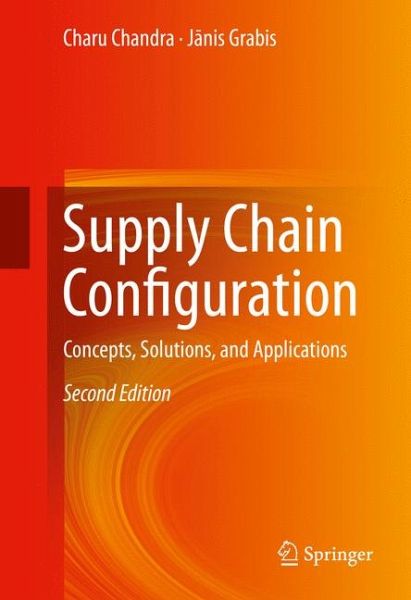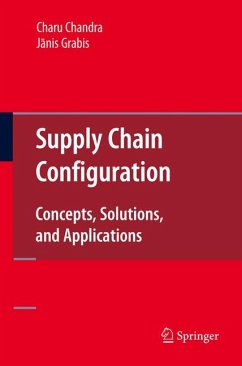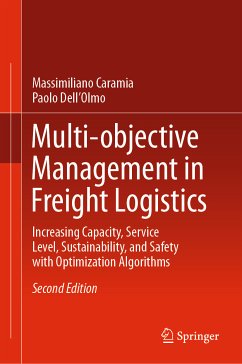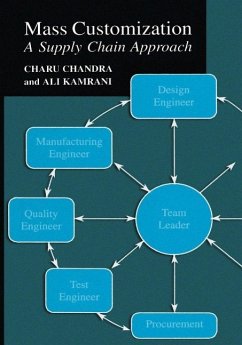
Supply Chain Configuration (eBook, PDF)
Concepts, Solutions, and Applications
Versandkostenfrei!
Sofort per Download lieferbar
72,95 €
inkl. MwSt.
Weitere Ausgaben:

PAYBACK Punkte
36 °P sammeln!
This book discusses the models and tools available for solving configuration problems, emphasizes the value of model integration to obtain comprehensive and robust configuration decisions, proposes solutions for supply chain configuration in the presence of stochastic and dynamic factors, and illustrates application of the techniques discussed in applied studies. It is divided into four parts, which are devoted to defining the supply chain configuration problem and identifying key issues, describing solutions to various problems identified, proposing technologies for enabling supply chain conf...
This book discusses the models and tools available for solving configuration problems, emphasizes the value of model integration to obtain comprehensive and robust configuration decisions, proposes solutions for supply chain configuration in the presence of stochastic and dynamic factors, and illustrates application of the techniques discussed in applied studies. It is divided into four parts, which are devoted to defining the supply chain configuration problem and identifying key issues, describing solutions to various problems identified, proposing technologies for enabling supply chain confirmations, and discussing applied supply chain configuration problems.
Its distinguishing features are:
- an explicit focus on the configuration problem
- an in-depth coverage of configuration models
- an emphasis on model integration
- and application of information modeling techniques in decision-making
New to this edition is Part II: Technologies, which introduces readers to various technologies being utilized for supply chain configuration and contains two new chapters. The volume also has an added emphasis on the most recent theoretical developments and empirical findings in the area of supply chain management and related topics. This book is appropriate for professional and technical readers, including research directors, research associates, and institutions involved in both the design and implementation of logistics systems in manufacturing and service-related products. An equally appropriate audience is the academic reader, including professors, research associates, and students in industrial, manufacturing, mechanical, and automotive engineering departments, as well as engineering management, management sciences, and production and operations management.
Dieser Download kann aus rechtlichen Gründen nur mit Rechnungsadresse in A, B, BG, CY, CZ, D, DK, EW, E, FIN, F, GR, HR, H, IRL, I, LT, L, LR, M, NL, PL, P, R, S, SLO, SK ausgeliefert werden.
Alle Preise in Euro und inkl. der gesetzl. MwSt. | Innerhalb Deutschlands liefern wir preisgebundene Bücher versandkostenfrei. Weitere Informationen: bitte hier klicken
Support
Bitte wähle dein Anliegen aus:
Rechnungen
Bestellstatus
Retourenschein
Storno












